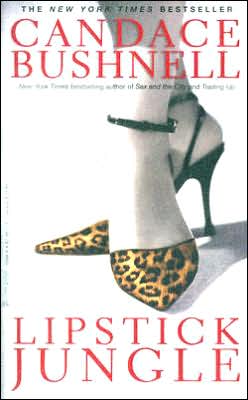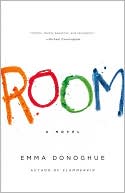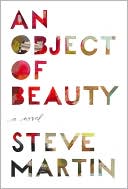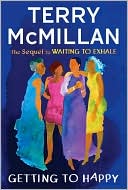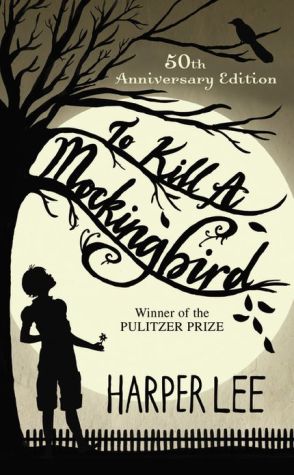Lipstick Jungle
The new novel that fans of the bestselling author have been waiting for, about three sexy, powerful career women who will do anything to stay at the top of their fieldsVictory Ford is the darling of the fashion world. Single, attractive, and iconoclastic, she has worked for years to create her own signature line. As Victory struggles to keep her company afloat, she learns crucial lessons about what she really wants in a relationship.Nico O'Neilly is the glamorous, brilliant editor of Bonfire...
Search in google:
The new novel that fans of the bestselling author have been waiting for, about three sexy, powerful career women who will do anything to stay at the top of their fieldsVictory Ford is the darling of the fashion world. Single, attractive, and iconoclastic, she has worked for years to create her own signature line. As Victory struggles to keep her company afloat, she learns crucial lessons about what she really wants in a relationship.Nico O'Neilly is the glamorous, brilliant editor of Bonfire Magazine—the pop-culture bible for fashion, show business, and politics. Considered one of the most powerful women in publishing, she seems to have it all. But in a mid-life crisis, she suddenly realizes this isn't enough.Wendy Healy's chutzpah has propelled her to the very top of the cut-throat movie industry. When it becomes clear that a competitor is trying to oust her, something has to give—and Wendy must decide between her career and her marriage.In Lipstick Jungle, Bushnell once again delivers an addictive page-turner of sex and scandal that will keep readers enthralled and guessing to the very last page.BooklistBushnell rose to fame with her witty expose of the New York social scene, Sex and the City (1996), but since then, she's been writing fiction. Her third novel since Sex thrusts readers into a world that might seem familiar to fans of either Bushnell's first book or the hit TV show it inspired. Victory Ford, Wendy Healy, and Nico O'Neilly are three movers and shakers in Manhattan who still find time to lunch at the hottest restaurants, not unlike the four ladies of Sex and the City. Victory is a world-famous fashion designer whose spring collection failed to impress at New York's all-important fashion week. As the president of Parador Pictures, Wendy is gearing up for the film she hopes will finally snag her the coveted Best Picture Oscar. Nico, editor in chief of Bonfire magazine, is working her way up the corporate ladder. The ladies' love lives are just as interesting as their careers. Victory is being courted by an eccentric billionaire; Wendy's handsome, lazy husband has just demanded a divorce; and married Nico finds herself drawn into a fling with a handsome, younger male model. Readers who want to immerse themselves in the trendy world of New York's high society will find themselves at home in this scintillating novel.
Lipstick Jungle\ \ By CANDACE BUSHNELL \ HYPERION\ Copyright © 2005 Candace Bushnell\ All right reserved.\ ISBN: 0-7868-6819-8 \ \ \ Chapter One\ SEPTEMBER IS GLORIOUS IN MANHATTAN, AND THIS year was no exception. The temperature was a perfect seventy-five degrees, the humidity low, and the sky a cloudless blue. Coming back to the city from a restless summer, the weather is always a reminder that spectacular things can happen and that greatness is just around the corner. The air buzzes with excitement, and in one day, the city goes from sleepy to frenzied. There's the familiar crawl of traffic on Sixth and Park Avenues, the air hums with cell phone conversations, and the restaurants are full. For the rest of the country, Labor Day marks the end of the summer and the beginning of the school year. But in New York, the real year begins a few days later, with that venerable tradition known as Fashion Week. \ On Sixth Avenue behind the Public Library, Bryant Park was transformed into a wonderland of white tents where dozens of fashion shows would take place. Black carpeted steps led up to French doors, and all week, these steps were lined with students and fans hoping to get a glimpse of their favorite designers or stars, with Japanese photographers (whom everyone agreed were more polite), with paparazzi, with security men with headsets and walkie-talkies, with the young P.R. girls (always in black, sporting concerned expressions), and with all manner of well-heeled attendees shouting into cell phones for their cars. The curb was lined with black town cars three vehicles deep, as if some terribly important state funeral were about to take place. But inside the tents, life was at its most glamorous and exciting.\ There were always five or six big shows at which attendance was required to secure one's place in the social pecking order (or to simply remind everyone that you still exist), and the very first of these events was the Victory Ford show, held at seven p.m. on the first Thursday evening of Fashion Week. By six forty-five, the scene inside the tents was one of controlled pandemonium-there were six camera crews, a hundred or so photographers, and a throng of fashionistas, socialites, buyers, and lesser stars, eagerly awaiting the show with the anticipation of an opening night crowd. A young socialite who was cradling a small dachshund in her arms was hit in the back of the head by a video cam- era; someone else's Jimmy Choo slingback was trod on by one of the P.R. girls who nearly ran her over in order to get to someone more important. Those hoping to get a glimpse of a famous movie star were thwarted, however, because movie stars (and important political people, like the mayor) never went in the front entrance. They were escorted by security to a secret side entrance that led to the backstage area. And in this world, where life is a series of increasingly smaller circles of exclusivity (or Dante's circles of hell, depending on how you look at it), hanging out backstage before the show began was the only place to be.\ In the back corner of this area, hidden behind a rack of clothing, stood Victory Ford herself, surreptitiously smoking a cigarette. Victory had quit smoking years ago, but the cigarette was an excuse to have a moment to herself. For three minutes, everyone would leave her alone, giving her a few seconds to focus and prepare for the next sixty minutes, in which she had to attend to the last-minute details of the show, schmooze with her celebrity clients, and give several interviews to the print and television press. She frowned, taking a drag on the cigarette, wanting to savor this one moment of peace. She'd been working eighteen-hour days in the four weeks before the show, and yet, this next crucial hour would pass in what felt like a second. She dropped the cigarette butt into a half-empty glass of champagne.\ She looked at her watch-an elegant stainless-steel Baume & Mercier with a row of tiny diamonds along the face-and took a deep breath. It was six-fifty. By eight p.m., when the last model had completed her turn on the runway and Victory went out to take her bow, she would know her fate for the coming year. She would be either on top of the game; in the middle and surviving; or on the bottom, trying to regain her position. She knew she was taking a risk with this show, and she also knew she hadn't had to. Any other designer would have continued along the same lines that had made them so successful for the past three years, but Victory couldn't do that. It was too easy. Tonight she hoped to show the industry a new side to her talents, a new way to look at how women might dress. She was, she thought wryly, either a hero or a fool.\ She stepped out from behind the rack of clothing, and was immediately accosted by three of her acolytes, bright young women in their twenties who worked almost as tirelessly as she did. They were wearing clothing from the new collection, held clipboards and headsets, and had panic-stricken expressions.\ Victory smiled calmly. "Lila," she said, addressing one of the girls, "are the drummers in place?"\ "Yes, and Bonnie Beecheck, the gossip columnist, is freaking out-she says she has ear trouble and we have to move her seat."\ Victory nodded. Bonnie Beecheck was about a million years old and was like one of the evil witches in a Grimm's fairy tale-no one liked her, but not to invite her would guarantee bad press for the rest of the year. "Switch her seat with Mauve Binchely. Mauve's so desperate to be seen she won't mind where she sits. But do it quickly, before anyone notices."\ Lila nodded and ran off, while the two remaining young women vied for her attention. "'Extra' wants to do an interview ..."\ "Keith Richards is coming and we don't have a seat ..."\ "And four pairs of shoes are missing ..."\ Victory took care of these problems with dispatch. "'Extra' gets two minutes, escort Keith backstage and keep him here until the last minute. The shoes are in a box under the makeup table." Composing her face, she approached the "Extra" camera crew, who were standing in the middle of a swirl of well-wishers, all of whom wanted to say hello. She moved through the crowd with graceful expertise, feeling as if she were floating above her body, stopping to kiss a cheek here, engaging in a few seconds of brief repartee there, and shaking the hand of someone's solemn and awestruck ten-year-old daughter, whose mother claimed she was already a huge fan.\ I hope she's still a fan after the show, Victory thought sardonically, allowing herself a brief moment of insecurity.\ In the next second, however, the "Extra" crew was on top of her, and a young woman with frizzy red hair was shoving a microphone in her face. Victory looked at the girl's expression and braced herself. Six years of doing inter- views had taught her to read an interviewer instantly as friend or foe, and while most of the entertainment press were as charming and gracious as the most seasoned celebrity, every now and then you got a bad apple. Victory could tell by the girl's forced, disdainful smile that she had an ax to grind. Sometimes the reason was simply a case of having just been dumped by a boyfriend, but often it ran deeper: A general feeling of being pissed off at the world because it wasn't as easy to get ahead in New York as one had been led to believe.\ "Victory," the young woman said assertively, adding, "you don't mind if I call you Victory, do you?" The deliberately cultured accent told Victory the girl probably considered herself above fashion. "You're forty-two years old ..."\ "Forty-three," Victory said, correcting her. "I still have birthdays." She was right-beginning an interview with the age question was an act of open hostility.\ "And you're not married and you don't have children. Is it really worth giving up marriage and children for your career?"\ Victory laughed. Why was it that no matter what a woman accomplished in the world, if she hadn't married and had children, she was still considered a failure? The girl's question was completely inappropriate, given the circumstances, and profoundly disrespectful, for what could this girl know about the vagaries of life and how she'd struggled and made all kinds of sacrifices to get to this point-an internationally recognized fashion designer with her own company-an accomplishment that was probably far greater than what this unpleasant young woman would ever achieve. But Victory knew better than to lose her temper. If she did, it would end up on TV and probably in a few of the gossip columns.\ "Every morning when I wake up," Victory began, telling a story she'd told to interviewers many times before (but still, none of them seemed to be able to get it), "I look around and I listen. I'm alone, and I hear ... silence." The girl gave her a sympathetic look. "But wait," Victory said holding up one finger. "I hear ... silence. And slowly but surely a happiness spreads through my body. A joy. And I thank God that somehow, I've managed to remain free. Free to enjoy my life and my career."\ The girl laughed nervously. She tugged on her hair.\ "So much of being a woman is telling lies, isn't it?" Victory asked. "It's telling yourself that you want the things that society tells you you should want. Women think that survival depends on conformity. But for some women, conformity is death. It's a death to the soul. The soul," she said, "is a precious thing. When you live a lie, you damage the soul."\ The girl looked at Victory in surprise, and then, frowning in agreement, began nodding vigorously as they were suddenly interrupted by one of Victory's assistants, who was talking excitedly into her headset. "Jenny Cadine is here. Her ETA is three minutes ..."\ * * *\ WENDY HEALY PUSHED HER glasses up her nose and stepped out of the Cadillac Escalade, looking around at the throng of paparazzi, who were now surrounding the SUV. No matter how many times she'd been in this situation, it never ceased to amaze her how they always managed to find the movie star. They could smell stardom like bloodhounds. Despite all her years in the movie business, she still couldn't understand how the stars handled the attention, and knew she'd never be able to (or more importantly, want to) deal with it herself. Of course, in her position, she didn't have to. She was the president of Parador Pictures, one of the most powerful women in the movie business, but to the photographers, she might as well have been someone's assistant.\ Wendy turned back to the SUV, unconsciously tugging on her black Armani jacket. She lived in black Armani separates, and, she suddenly realized, hadn't actually gone shopping in two years. This was probably inexcusable, given that one of her best friends was the fashion designer Victory Ford. She should have dressed up for this event, but she'd come from her office, and with her job and three children and a husband who was sometimes a child himself, something had to give, and that was fashion. And the gym. And healthy eating. But what the hell. A woman couldn't do everything. The most important thing was that she was there, and that, as she promised Victory months ago, she'd brought Jenny Cadine.\ The crowd of photographers pushed closer to the SUV, as several security men stepped forward, trying to hold back the eager horde, which seemed to be growing larger by the second. Jenny's personal publicist, a surly-looking young woman who was known by one name only-Domino-emerged from the SUV. Domino was only twenty-six, but had the kind of don't-mess-with-me attitude one generally associates with male muscle-heads, accompanied by the kind of gravelly voice that suggested she ate nails for breakfast. "They said, 'Get back!'" she barked, staring down the crowd.\ And then Jenny Cadine appeared. She was, Wendy thought, even more jaw-droppingly beautiful in person than she was in photographs, if such a thing were possible. Photographs always picked up her slightly asymmetrical features, and the fact that her nose was a bit bulbous on the tip. But in person, these flaws were erased by an intangible quality that made it impossible to stop looking at her. It was as if she possessed her own energy source that caused her to be lit from within, and it didn't hurt that she was five feet nine inches tall, with hair the pale, slightly golden reddish color of not-quite-ripe strawberries.\ She smiled at the photographers, while Wendy stood to the side for a moment, watching her. People outside of the business always wondered what it was like to know such a creature, and assumed that envy would make it impossible to be friends. But Wendy had known Jenny for nearly fifteen years, when they'd both been starting out in the business, and despite her money and fame, would never have considered trading places with her. There was something inhuman about Jenny-she was never excessive or arrogant, nor was she rude or egotistical. But there was a remove about her, as if she might not possess a soul. Jenny was one of her stars, and Wendy knew that they were probably as close as Jenny was to anyone. But they weren't really friends, like the way she was friends with Victory or Nico O'Neilly.\ The security guards managed to create a little space in front of them so they could walk the short distance to the opening in the side of the tent. Jenny was wearing a brown pantsuit with slightly flared trouser legs under a neon jacket that was, Wendy decided, one of the coolest outfits she'd ever seen. It was from Victory's new collection, and Wendy knew that Victory had made it especially for Jenny, and that Jenny had gone to Victory's studio several times for fittings. But Victory had been so busy in the last three weeks that Wendy hadn't been able to talk to her about it, or what she thought about Jenny. Still, she could imagine what Vic would say. Screwing up her face like a child, she'd say, "You know, Wen, Jenny's a great girl. But you can't really call her 'nice.' She's probably more calculating than we are-maybe even more calculating than Nico." And then they'd laugh, because they always agreed that Nico was possibly the most calculating woman in town. She was a master, and the brilliant thing about Nico was that you never saw her machinations. All you knew was that suddenly you were dead.\ It had been Nico's idea to get Jenny Cadine to Victory's fashion show, which was so obvious Wendy had been slightly embarrassed that she hadn't thought of it herself. "It's perfect," Nico said, in that smooth, cool way she had of speaking that made everything that came out of her mouth sound absolutely right. "Jenny Cadine is the most important movie star, and Victory is the most important designer. Besides," she said, "Jenny mostly wears male designers. I have the feeling she's a feminist underneath all that gloss, especially after her breakup with Kyle Unger," she added, naming the action-adventure star who had publicly dumped Jenny on a late-night talk show. "I'd appeal to her feminist side, although I doubt you'll have to. She doesn't have great taste in men, but she has excellent taste in clothing."\ Naturally, Nico had been right, and Jenny had jumped at the chance to be dressed by Victory and to attend the fashion show, where her presence would guarantee Victory even more publicity. And now, watching as Jenny smoothly made her way through the gauntlet of photographers (she had a way of acknowledging their presence while appearing completely natural, as if she wasn't being photographed at all), Wendy hoped that Jenny's appearance was a sign that Victory's show would be a success. Although she never would have admitted it to anyone, Wendy was quite superstitious, and for Victory's sake, was even wearing her good-luck underpants-an embarrassingly tattered pair of large white Fruit-of-the-Looms, which she'd happened to be wearing when one of her movies was nominated for an Oscar for the first time five years ago.\ Jenny entered the tent with Wendy following close behind. Dropping her hand to the side, Wendy quickly crossed her fingers. She hoped Victory's show was huge. No one deserved it more.\ * * *\ SEVERAL MINUTES LATER. AT exactly seven-fifteen, a brand-new black Town Car with tinted windows pulled up in front of the entrance to the tents on Sixth Avenue. A driver in a pin-striped suit with slicked-back dark hair walked around the back of the car and opened the passenger door.\ Nico O'Neilly stepped out. Wearing silver pants with a ruffled shirt, topped with a golden-reddish mink jacket that was nearly the same color as her hair, there was no mistaking the fact that Nico O'Neilly was someone significant. From an early age, Nico had been one of those people who exude an air of importance that causes other people to wonder who they are, and at first glance, with her stunning hair and glamorous clothes, one might take her for a movie star. On closer inspection, one saw that Nico wasn't technically beautiful. But she had done the most with what she had, and as confidence and success create their own kind of beauty in a woman, the general consensus was that Nico O'Neilly was damn good-looking.\ (Continues...)\ \ \ \ \ Excerpted from Lipstick Jungle by CANDACE BUSHNELL Copyright © 2005 by Candace Bushnell.\ Excerpted by permission.\ All rights reserved. No part of this excerpt may be reproduced or reprinted without permission in writing from the publisher.\ Excerpts are provided by Dial-A-Book Inc. solely for the personal use of visitors to this web site. \ \
\ From Barnes & NobleSex and the City creator Candace Bushnell returns with a juicy novel of three high-powered Manhattan career women, each of them caught in a midlife crisis. Victory Ford, Nico O'Neilly, and Wendy Healy have achieved success in fashion, glamour, and media; but boardroom triumphs and bathrooms trysts leave them still unsatisfied. Vicarious pleasures.\ \ \ \ \ Liesl SchillingerThe stars of Bushnell's assured, ice-cold careerist fiction don't believe in bodice-rippers, although in their rare stolen moments of sex (usually illicit), they aren't above a little pantyhose-wrecking. Romance for them is something they do to keep in trim between deals, like 20 minutes on the StairMaster; and work, not love, is what keeps them together…It's refreshing, in the pool of chick lit, to float in the Machiavellian head space of ruthless women for whom "the rules" have nothing to do with husband-hunting.\ — The New York Times Book Review\ \ \ BooklistBushnell rose to fame with her witty expose of the New York social scene, Sex and the City (1996), but since then, she's been writing fiction. Her third novel since Sex thrusts readers into a world that might seem familiar to fans of either Bushnell's first book or the hit TV show it inspired. Victory Ford, Wendy Healy, and Nico O'Neilly are three movers and shakers in Manhattan who still find time to lunch at the hottest restaurants, not unlike the four ladies of Sex and the City. Victory is a world-famous fashion designer whose spring collection failed to impress at New York's all-important fashion week. As the president of Parador Pictures, Wendy is gearing up for the film she hopes will finally snag her the coveted Best Picture Oscar. Nico, editor in chief of Bonfire magazine, is working her way up the corporate ladder. The ladies' love lives are just as interesting as their careers. Victory is being courted by an eccentric billionaire; Wendy's handsome, lazy husband has just demanded a divorce; and married Nico finds herself drawn into a fling with a handsome, younger male model. Readers who want to immerse themselves in the trendy world of New York's high society will find themselves at home in this scintillating novel.\ \ \ \ \ New York MagazineThe real satisfaction here is the book's surprisingly thoughtful pop feminism, at once sharp and sweet.\ \ \ \ \ New York ObserverClassic Bushnell.\ \ \ \ \ Publishers WeeklyThough Bushnell's fourth book opens in familiar Sex and the City territory-a fashion show in Bryant Park where attendees sport Jimmy Choo and Baume & Mercier-the novel quickly takes off for deeper waters. For once, men-how to get them, how to keep them-aren't Bushnell's central focus, and her three main characters, all women in their early 40s, are surely her richest to date. Two of the three are married with children; all are at the top of their field. Wendy, a movie executive at the Miramax-like Parador, struggles to finish a potentially Oscar-winning flick while placating her unemployed hubby at home. Nico, editor-in-chief at Bonfire magazine, juggles the Machiavellian politics of her corporate parent-company with the needs of her na f boy-toy lover and her savvy Columbia professor husband. And while fashion designer Victory Ford may date a Mr. Big-like character, she takes the relationship lightly. Most of her energies are directed to saving her business, which has fallen on hard times since she launched a new, more innovative line. Bushnell herself won't face the same problem. There's plenty of the old razzle-dazzle to satisfy her fans. Her characters lunch at Michael's, go on dates to the Whitney Biennial and shop for ponies at the Palm Beach Polo Club. There's a make-out session in a bar bathroom, panty ripping on a kitchen countertop and many frank descriptions of urban sexual mores. But Bushnell's emphasis on female friendship and career ambition may also win her a legion of new readers. Her characters want "the sweet, creamy sensation of power," and it's Bushnell's account of how they got it, and how they keep it, that will really keep readers turning pages. Expect a splashy debut, followed by a long run of sales. Agent, Heather Schroder. (Sept.) Copyright 2005 Reed Business Information.\ \ \ \ \ Library JournalBushnell's (Sex and the City; Four Blondes) new novel will not disappoint her many fans. Three best friends are all named to the list of "New York's 50 Most Powerful Women." Victory Ford is a thriving fashion designer who built her company from the ground up. To reach the next level of success, she must discover what she desires most in her career and her life. Wendy Healy may be the president of a major movie studio, but she cannot manage her personal life (three children and a childish, whiny husband who depends on her for income). Although Nico O'Neilly is the toast of the publishing world as the editor credited with single-handedly reviving an ailing magazine, she has her sights on the top CEO position. Her once-successful husband now manages her career and breeds dogs in his spare time. Stereotypical gender roles are decidedly switched here: three successful, powerful friends take on the once solely masculine role of provider and leader while learning, uneasily at first, to balance their identities as women. Although the novel has its share of awkward plot machinations, Bushnell is skilled enough to create likable yet strong characters who ultimately draw in the reader. Recommended for all public libraries. [See Prepub Alert, LJ 5/15/05.]-Andrea Y. Griffith, Loma Linda Univ. Lib., CA Copyright 2005 Reed Business Information.\ \ \ \ \ Kirkus ReviewsBushnell has traded in the 30-something singles of Sex and the City (1996) for a claque of desperately scheming 40-something powerhouses. The three muskateeresses this go-'round are Victoria Ford, independent fashion designer; Wendy Healy, powerful president of Parador Pictures; and Nico O'Neilly, glamorous editor-in-chief of Bonfire magazine. A cool reception by stores and critics to Victoria's spring collection has put her company in financial jeopardy, a challenge she can handle more competently than the romantic advances by crass billionaire Lyne Bennet, whose hidden charms remain mostly hidden. Wendy, who runs her Hollywood studio from New York for unexplained reasons, is a mother of three whose marriage to sexy Shane, whom she has long supported as a boy-toy-turned-stay-at-home-dad, falls apart the day her latest picture is nominated for six Oscars. Nico is jockeying to take over her parent company while also juggling an adulterous affair with a male model who offers more sizzle than her decent but dull political scientist husband, Seymour. Wendy, Nico and Victoria are supposed to represent a new generation of strong, capable well-rounded women able to have personal and professional success, and there are certainly plenty of references to the brand-name perks and pleasures of their position, but these women are selfish, self-centered and not at all likeable. And their success seems way beyond their actual abilities. At least Victoria is single. Wendy and Nico are so obliviously neglectful of their spoiled-brat children that empathy for them is hard to produce. These women also share a deep streak of unhappiness that Bushnell's too-easy happy ending does not erase. If this is havingit all, who wants it?\ \
